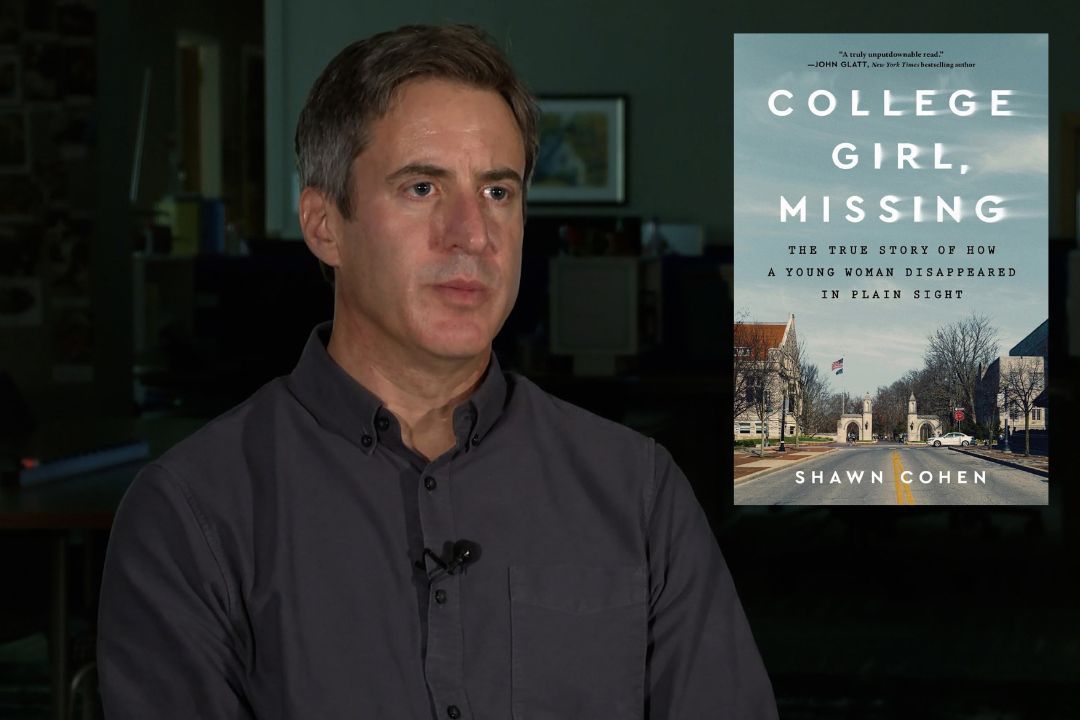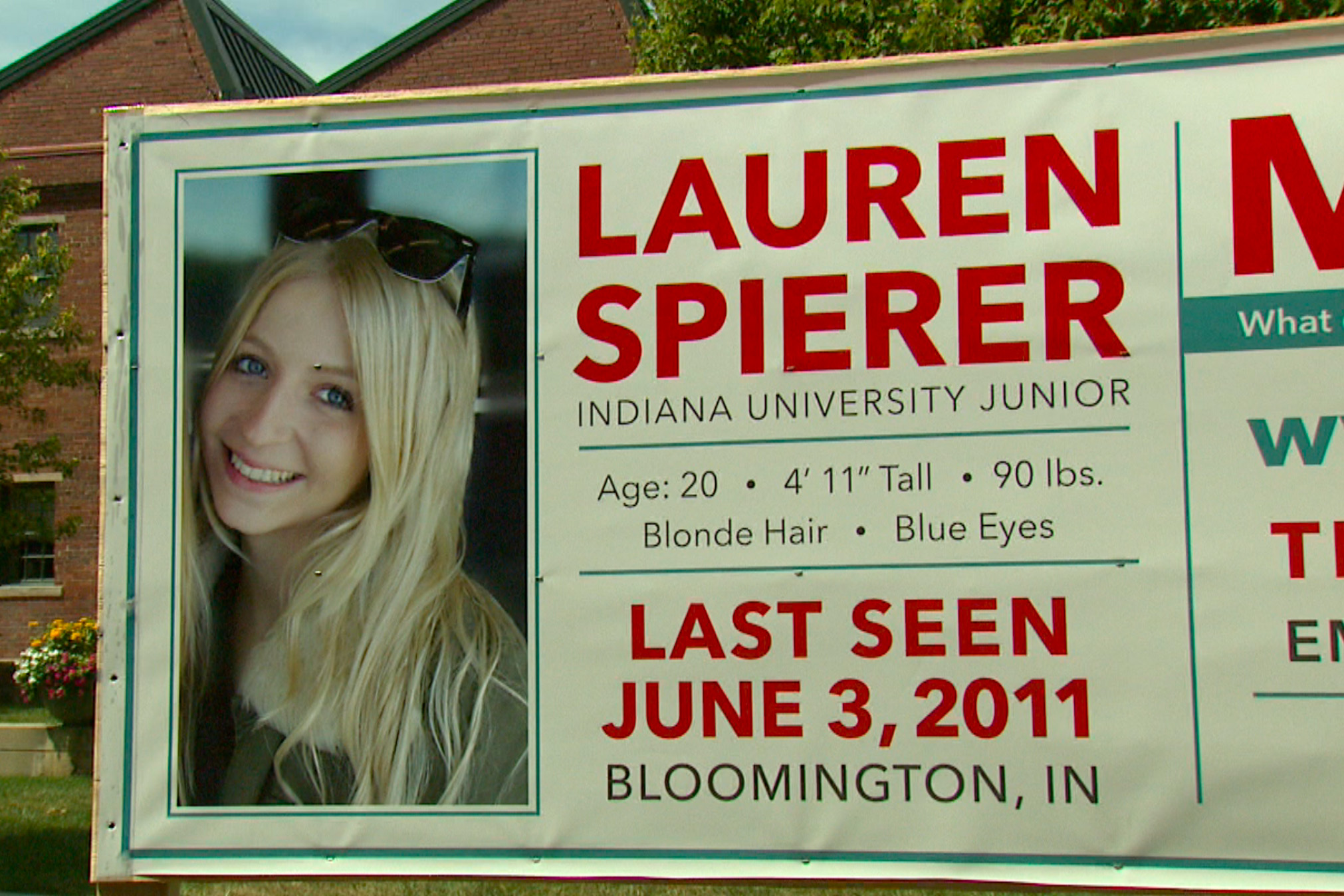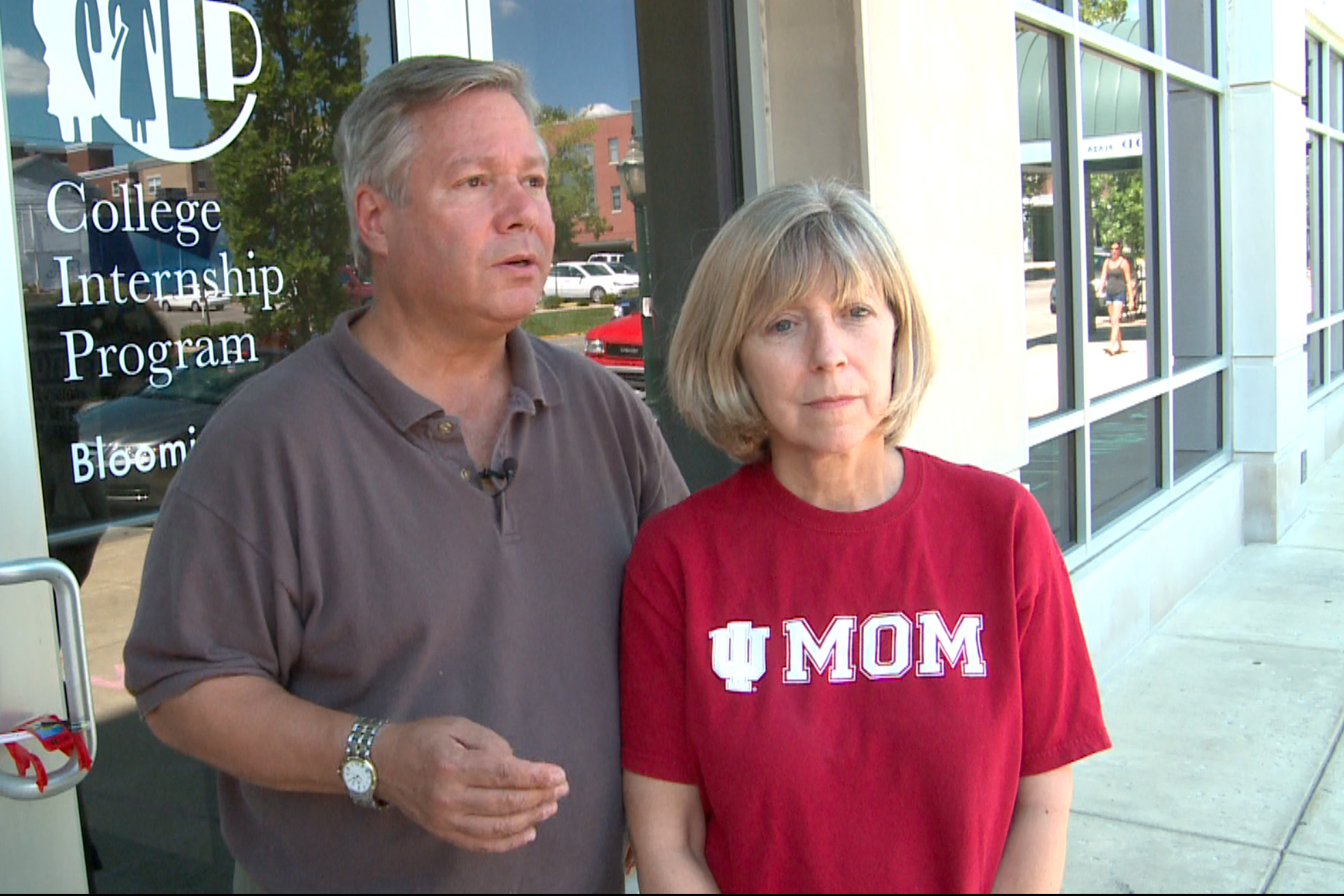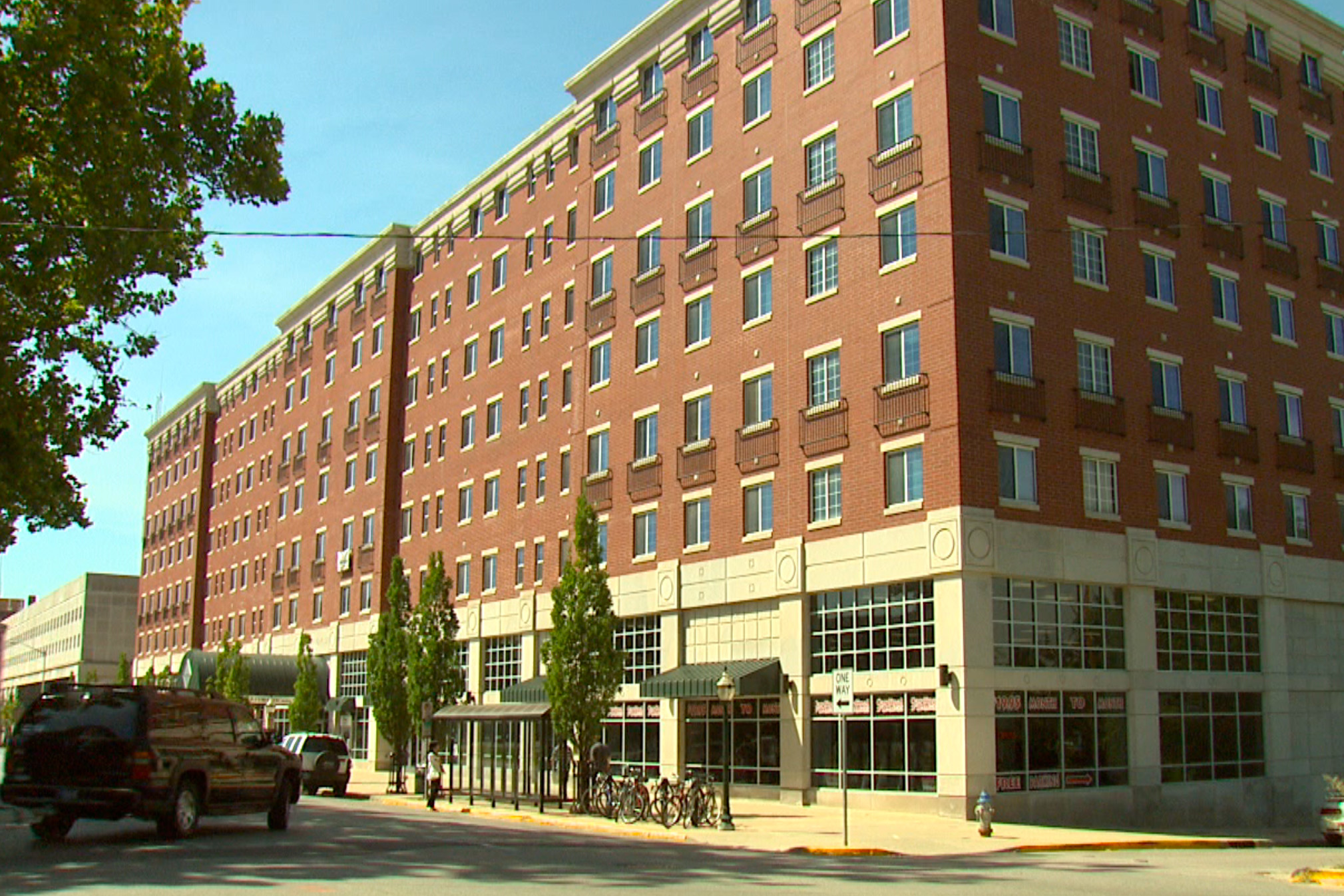
Shawn Cohen, pictured next to his book. (Devan Ridgway, photo illustration Katy Szpak, courtesy Shawn Cohen )
It’s been 13 years since Indiana University student Lauren Spierer went missing after a night out partying with friends. The case has been the subject of hundreds of news stories — including here on WTIU. But a new book released this week has details and interviews that’ve never been published.
WTIU's Pat Beane sat down with author Shawn Cohen to talk about his book – College Girl, Missing and where the Spierer investigation stands after all these years.
Responses have been edited for conciseness and clarity.

Beane: You were assigned this story originally, what brought you back to it?
Cohen: I was assigned this way back in 2011. It was June 3 that she went missing. I was in her hometown in Westchester, New York one weekend and got the call. So I came to Indiana to start digging into the case. Early on, I had met the family on on the streets and I maintained a connection with the family. The case had been cold for a bunch of years by this point, and they agreed to speak with me. They've never spoken to anyone before, and they opened all their investigative files to me. So that gave me a starting point for a fresh investigation of the case.

Beane: So you were able to talk to people that hadn't talked before? How were you able to contact them and get them to talk to you?
Cohen: So it started in 2018 when the family and I sat down and read through all their files, had the names of various people...witnesses to the events leading up to her disappearance. They agreed to speak with me and share some very painful details. I think the case had followed them for years and they were ready to talk. I started with her roommates and her best friends, and then I approached the last people to see her before she allegedly walked out of those townhouses.
Beane: Did it seem like they were forthcoming with everything or not?
Cohen: A lot of the people were forthcoming. When it came time to speak with the persons of interest in the case, that was much more of a challenge. Corey Rossman, who was with Lauren that night, spoke with me and so did Jay Rosenbaum, who was the last person to report seeing her.
Beane: There's a lot of theories about what happened to Lauren that night. Can you talk about what you heard or what you explore in the book?
Cohen: Over the years, there have been reports about various serial killers, sex offenders who some suspect may have been involved. But none of those theories went anywhere and they were discounted. We still have no evidence if Lauren ever made it out of those townhouses alive. What I did with the book was dive into what we do know and present all the facts to tell the story of what happened.
Beane: It wasn't the most innocent of stories for Lauren. I mean, you talk about her drug use and her relationships. Was that hard to deal with?
Cohen: There was a lot more going on that night than then I'd ever reported. I was talking to the person who sold her Klonopin and Xanax that night, just a friend down the hall, and other people who were doing cocaine with her. All those people paint a picture that this kind of activity was normalized.
Beane: You've been one of the few journalists able to get close enough to the family to talk to them in depth about this. Do they have any hopes of finding Lauren, or are they just wanting closure?
Cohen: They have to hold out hope. I think they'd been frustrated by the lack of new information coming out, which is why they let me do this. The facts are very important to dive into, and they're hoping that this will lead to more people coming forward. Maybe one of the persons of interest or someone they spoke with. With all the attention, hopefully they'll come forward.
Beane: Why do you think the police cases dried up? They had a private investigator and that didn't solve the case either. Was it just people not talking?
Cohen: The police haven't shared any real details of what they found. The central players in this lawyered up and didn't speak. So there was a situation where they don't have evidence to support an arrest. So I'm not shocked that we didn't learn more at the time. I think going back, within the Bloomington Police Department there were a lot of officers who didn't think they were doing enough early on. The private investigators came to town a couple of months later, and they made their own efforts. They spoke to a lot of witnesses who said they were never contacted by the Bloomington Police Department, certainly not interviewed in any serious way. But yes, they came up ultimately empty as well.
Beane: This case originated in Bloomington, but most of the players are from New York and elsewhere. Where has this story taken you?
Cohen: It's taken me back to Indiana. I tracked down officers and investigators who were there at the time, but no longer with the force. Lauren Spierer was from Westchester, New York. Her family still lives there. That was where a lot of the early time was spent. I went to Colorado to try and speak with Jesse Wolff, Lauren's boyfriend at the time. I went to Massachusetts to speak with people associated with Corey Rossman. A lot of traveling.
Beane: There's so many different theories about what happened. Do you have one that you settled on after going through all the information you have?
Cohen: I'm not going to come down with an opinion on this. I wanted the facts to speak for themselves. I think people who are paying attention when they read through this, they'll see there was no evidence that she ever made it out of those townhouses alive.

Beane: Do you think the case will ever get solved?
Cohen: Absolutely, I believe it will get solved. That's why I went about this, to put all the information on the table. All it takes is one person to call the police with a tip. One person coming forward could change the course of this entire case.
Beane: You've talked to people that haven't talked before. What new information do you think has come out?
Cohen: One thing I found interesting was we heard some about some videos early on that that showed Corey carrying Lauren and Lauren falling to the pavement. But what I learned from one of the former investigators was at about 3 a.m. in the midst of all this that Corey Rossman placed a phone call when Lauren was down on the curb. I was able to track down Corey's cell phone records and find out who he called, and that led me to track down the individual who he called.
When you string together the narrative of what happened that night, these are all key pieces of information, potentially evidence. Corey through his lawyer, very early on, stayed silent. His lawyer said that he had amnesia as a result of being punched that night, so he didn't remember anything. But when you dig into these last hours, Corey did interact with individuals and Lauren didn't. She was in somewhat of a haze, not speaking. He was doing all the talking. So the question is, did he really have absolutely no memory of anything that happened?
Beane: Is it just as simple as she could have overdosed, and then what do we do with her?
Cohen: Yes, because she had a heart condition, because she was mixing drugs and alcohol, and because she had fallen several times and hit her head, she was in very bad shape. So that leads to the question whether she just died that night. And what what happened next? One theory is the people who are with her panicked because they were involved. Here we are, all these years later with that same question.
Sara Wittmeyer contributed to this story.











